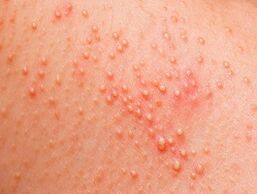Parasites are disease-causing organisms that can inhabit the human body, animals, and even some plants. There are many types of beings in the world that penetrate the host body, eat useful substances, actively reproduce and leave residues in their body, which leads to the development of all kinds of diseases.
Worms are most commonly found in humans. These are worms of various lengths and sizes, most of which live in the vertebrate intestine. But some helminths can migrate throughout the body, invading muscles, liver, heart, joints, lungs, and even the brain.
Worms harm the body of their host, so everyone should know how to determine the presence of parasites in the body. But many people do not want to go to the hospital, wasting their time and being tested for worms in a ridiculous way.
In this case, one can find out if there are parasites in the body by paying attention to important criteria such as characteristic symptoms that develop with certain types of helminthiasis. What if they were not there? This is not the case!
However, in the early stages of helminthic invasion, signs of important activity of foreign microorganisms are less pronounced or they are completely absent. The clinical picture becomes strong and clear only when helminths are actively developing, as their larvae are unable to parasite in humans.
How to determine the presence of worms in the body without medical research?

Different types of parasites cause characteristic symptoms in the host. If they are identified in a timely manner and described correctly, then this makes it possible to determine the infection even at an early stage.
Thus, the probability of misdiagnosis is reduced, which allows for proper and effective decomposition using folk or medical antiparasitic agents.
Therefore, to identify parasites in the human body, you need to pay attention to its symptoms:
- Teeth grind at night.
- Allergic skin rashes - acne, pimples, urticaria, herpes on the lips, eczema, red spots, papillomas, neurodermatitis, psoriasis and more.
- Development of upper respiratory tract diseases (bronchitis, pneumonia, runny nose), typical of ascariasis and strongyloidosis.
- Flatulence and diarrhea appear due to the fact that long worms prevent the excretion of bile and pancreatic juices.
- Constipation occurs when worms form balls that block the intestinal tract.
- Discomfort in joints and muscles due to parasite migration.
- Severe irritation, caused by painful symptoms.
- Persistent tuberculosis that cannot be treated with standard antitussive.
Increases in body temperature to subfebrile values are also observed. The causes of this condition may lie in allergies, blood poisoning, neurological disorders, impaired function of internal organs and the brain, and anemia syndrome.

In addition, the worms that live in a person greatly reduce their immunity, as a result of which patients often suffer from colds. Also, patients experience prolonged depression caused by body intoxication.
Typical symptoms of helminthiasis are nausea and vomiting, which are also caused by the release of toxic substances. Moreover, certain types of worms can live in the human body, producing certain hormones that affect the intestinal microflora, which causes diarrhea.
However, in some cases, such symptoms are not associated with helminthiasis, as they are similar to the symptoms of food poisoning. While this can be a serious problem, as treatment is started later, the more damage to their host organs and systems, the parasites will have time to cause.
Therefore, to detect helminthiasis at home, some kind of test should be done. For this purpose, you need to answer the following questions:
- Is the anus itchy at night?
- Are the lymph nodes swollen?
- Is there a rash on the skin?
- How often does insomnia occur?
- Do you experience vomiting and nausea?
- Are muscle and muscle pains?
- How often does bloating develop?
- How often does bitterness in the mouth occur?
If a person gives seven affirmative answers to these questions, then with a high probability it can be said that his body is infected with worms.
How to identify the type of helminthiasis according to symptoms?

At home, you can determine which helminths inhabit the human body. But this can be done only if the parasitosis has reached the active phase of its development.
Ascariasis and diphyllobothriasis are characterized by the most intense neurological symptoms in young patients. Aggressive behavior and increased nervousness occur due to the effects of toxic substances on the nervous system. For the same reason, infected people suffer from migraines and dizziness.
As a rule, trichinosis is accompanied by joint and muscle pain, as well as swelling of the face and eyelids. This is due to the strange life of Trichinella, which lives in skeletal muscle. You can be infected with this parasite if you eat the meat of wild animals or pork, which is not thermally processed.
Giardiasis affects liver and kidney function and provokes all types of allergic reactions. Moreover, some people, when their body is damaged by lamblia, suffer from arthritis, which develops as a result of intoxication. Also, in invasive patients, immunity is weakened, against this background, the following diseases develop:
- sinusitis;
- stomatitis;
- bacterial vaginosis and more.

The hallmark of pinworm enterobiasis is itching in the anal canal. Moreover, most infected people suffer from gastrointestinal damage.
Anemia syndrome is a characteristic of schistosomiasis. There are also manifestations of dysbiosis (pathogenic microorganisms inhibit good microflora).
With cloronchiasis, fasciaelosis and opisthorchiasis, the gallbladder is affected and icteric syndrome develops. Moreover, with the background of this helminthiasis, the liver and spleen increase.
Strongyloidiasis has many symptoms. Thus, with its development, there is damage to the gastrointestinal tract, dyspeptic disorders and manifestations of allergies.
How to determine if helminth eggs are available without laboratory conditions? When the worm is in the multiplication phase, it is easy enough to know about its presence in the body. To do this, you need to do an analysis for parasitic eggs.
With the development of opisthorchiasis, you can do your own research at home. For this purpose, adhesive tape or tape must be attached to the skin in the anal area.
This is best done as soon as you wake up in the morning. If a person has opisthorchias, then the egg will be identified on the surface of the tape adhesive.
Laboratory methods for detecting parasites
If the patient has more than three characteristic symptoms of helminthiasis, then he should contact a medical institution until the determination of the presence of parasites in the home is confirmed by the laboratory.

The first step in case of suspected helminthic invasion is a fecal study. This allows you to identify tapeworm eggs, round helminths and flux. However, for accurate diagnosis confirmation, the test must be performed three times every few days.
To determine enterobiasis, scraping is taken near the anus. In addition, one of the most accurate and accurate tests for patients is ELISA, which allows you to detect blood antibodies produced by the body while paralyzing pathogenic microorganisms.
Occasionally bioresonance diagnostics are performed, studying the frequency of parasites. This method is very informative, as it determines the condition of the body as a whole. In addition, in addition to parasites, such studies allow you to know the state of immunity, which weakens it, to identify other diseases, as well as pathogenic fungi, bacteria and viruses.






































